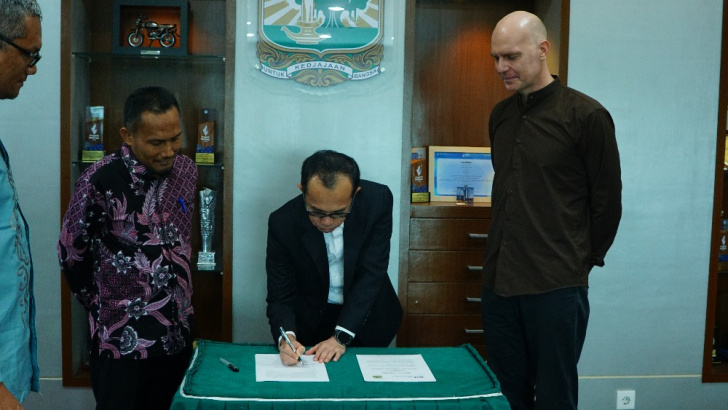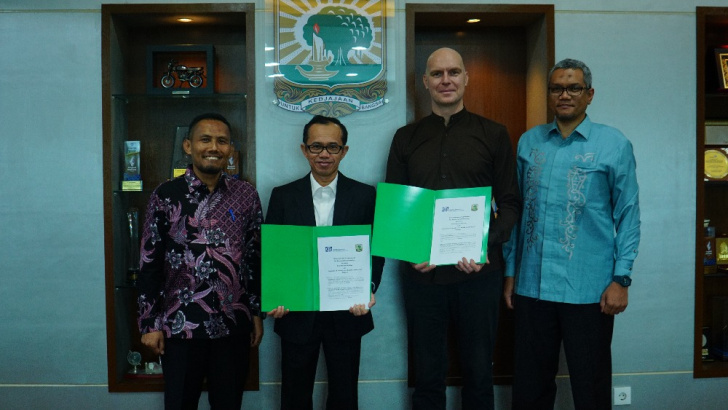Agreement on Polish-Indonesian Scientific Cooperation Signed
The Institute of Geophysics, Polish Academy of Sciences (IG PAS) has signed a cooperation agreement with Universitas Andalas in Padang, Sumatra, one of Indonesia’s leading research centres.
The collaboration between the two institutions focuses on atmospheric physics. For several years, scientists from IG PAS and Universitas Andalas (UNAND) have been conducting joint research on processes contributing to extreme rainfall and floods. The results of this collaboration have been published in several scientific articles, expanding knowledge of the interactions and mechanisms governing atmospheric flows and their impact on rainfall variability. These findings also point to new, promising research directions and analyses that could enhance the prediction of hazardous weather phenomena.
The recently signed agreement marks a new chapter in their joint research. While previous cooperation primarily involved analysing publicly available data, the new efforts are aimed at establishing a meteorological measurement network along the Anai Valley in West Sumatra (Barisan-Anai Meteorological Network – BAMNet). Through this collaboration, and with the help of measurement equipment prepared at IG PAS, which will be sent to Sumatra and operated by UNAND staff, it will be possible to gain a deeper understanding of the processes governing rainfall variability in West Sumatra, including identifying the mechanisms responsible for extreme rainfall events.
The equator runs through West Sumatra, which is significant because the processes shaping weather in the tropics occur near the equator, and weather systems, such as those influencing rainfall, typically move along it. Additionally, this region is located at the western edge of the Malay Archipelago (a complex area of islands, oceans, continental shelves, and deep seas that includes Indonesia, Malaysia, and Papua New Guinea), in close proximity to the Indian Ocean. Large-scale atmospheric circulations that affect local storm activity and rainfall intensity in this area generally move from west to east. However, the processes occurring over the ocean differ from those over land. Current weather forecasting models struggle to differentiate between these, particularly in the Malay Archipelago region. The newly acquired data will provide a better understanding and identification of processes key to the evolution of rainfall patterns, thus improving weather forecasts.
IGF PAN and UNAND also plan to explore opportunities to expand cooperation beyond atmospheric physics, including into fields related to hydrology and seismology. Additionally, opportunities will be sought for collaboration in research areas beyond IGF PAN’s expertise, to be conducted by other units of the Polish Academy of Sciences and other research centres in Poland.
Polish activities within this cooperation are financed by Poland’s National Science Centre.






















